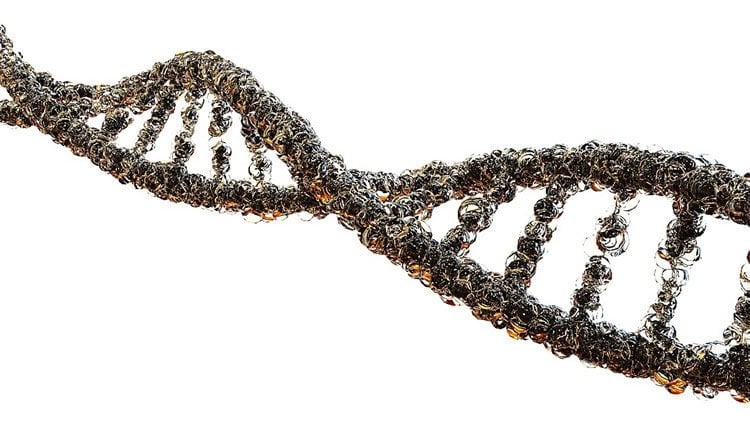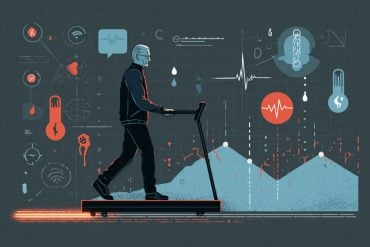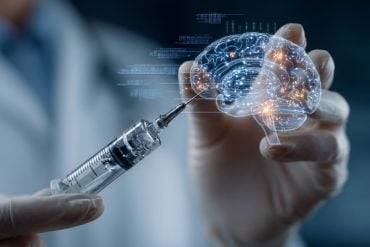Summary: Study reveals sleep deprivation is associated with lower DNA repair gene expression and more breaks in DNA. The damage to DNA may explain the increased risk of cancers and neurodegenerative diseases in those who are sleep deprived.
Source: Wiley.
Sleep deprivation was associated with DNA damage in a new Anaesthesia study.
In the observational study on 49 healthy full-time doctors who had their blood analyzed at different time points, on-call doctors who were required to work overnight on-site had lower DNA repair gene expression and more DNA breaks than participants who did not work overnight. In these overnight on-site call doctors, DNA repair gene expression decreased and DNA breaks increased after sleep deprivation. Damaged DNA increased after only one night of sleep deprivation.
Although additional research is needed, this DNA damage may help explain the increased risk for cancer and cardiovascular, metabolic, and neurodegenerative diseases associated with sleep deprivation.
“Although this work is very preliminary, it is clear from the results that even a single night of sleep deprivation can trigger events that may contribute to the development of chronic disease,” said senior author Dr. Siu-Wai Choi, of the University of Hong Kong.

“Anaesthetists (and other health professionals) frequently work night shifts and on call duties, and their work patterns change frequently between night and day work. This study is important in that it will allow future researchers to study the impact of changing the way we work and other interventions by evaluating DNA breaks in the same way as the authors of this groundbreaking study have done,” said Dr Klein, the Editor-in-Chief of the journal.
Source: Josh Glickman – Wiley
Publisher: Organized by NeuroscienceNews.com.
Image Source: NeuroscienceNews.com image is in the public domain.
Original Research: Open access research for “The effect of sleep deprivation and disruption on DNA damage and health of doctors” by V. Cheung, V. M. Yuen, G. T. C. Wong, and S. W. Choi in Anaesthesia. Published January 23 2019.
doi:10.1111/anae.14533
[cbtabs][cbtab title=”MLA”]Wiley”How Sleep Deprivation Affects Our Genes.” NeuroscienceNews. NeuroscienceNews, 224 January 2019.
<https://neurosciencenews.com/sleep-deprivation-genetics-10638/>.[/cbtab][cbtab title=”APA”]Wiley(2019, January 224). How Sleep Deprivation Affects Our Genes. NeuroscienceNews. Retrieved January 224, 2019 from https://neurosciencenews.com/sleep-deprivation-genetics-10638/[/cbtab][cbtab title=”Chicago”]Wiley”How Sleep Deprivation Affects Our Genes.” https://neurosciencenews.com/sleep-deprivation-genetics-10638/ (accessed January 224, 2019).[/cbtab][/cbtabs]
Abstract
The effect of sleep deprivation and disruption on DNA damage and health of doctors
Observational studies have highlighted the detrimental health effects of shift work. The mechanisms through which acute sleep deprivation may lead to chronic disease have not been elucidated, but it is thought that increased DNA damage or decreased repair can lead to disease. The objective of this study was to examine the effects of acute sleep deprivation on DNA damage. This was a cross‐sectional observational study on 49 healthy, full‐time doctors. Baseline blood was sampled from each participant after three consecutive days of adequate sleep. Participants (n = 24) who were required to work overnight on‐site had additional blood sampled on a morning after acute sleep deprivation. DNA damage and expression of DNA repair genes were quantified. Information on health, working patterns and sleep diaries were collected. Independent t‐tests were used to compare differences between groups and standardised mean differences expressed as Cohen’s d. Overnight on‐site call participants had lower baseline DNA repair gene expression and more DNA breaks than participants who did not work overnight (d = 1.47, p = 0.0001; and 1.48, p = 0.0001, respectively). In overnight on‐site call participants, after acute sleep deprivation, DNA repair gene expression was decreased (d = 0.90, p = 0.0001) and DNA breaks were increased (d = 0.87, p = 0.0018). Sleep deprivation in shift workers is associated with adverse health consequences. Increased DNA damage has been linked to the development of chronic disease. This study demonstrates that disrupted sleep is associated with DNA damage. Furthermore, larger prospective studies looking at relationships between DNA damage and chronic disease development are warranted, and methods to relieve, or repair, DNA damage linked to sleep deprivation should be investigated.






